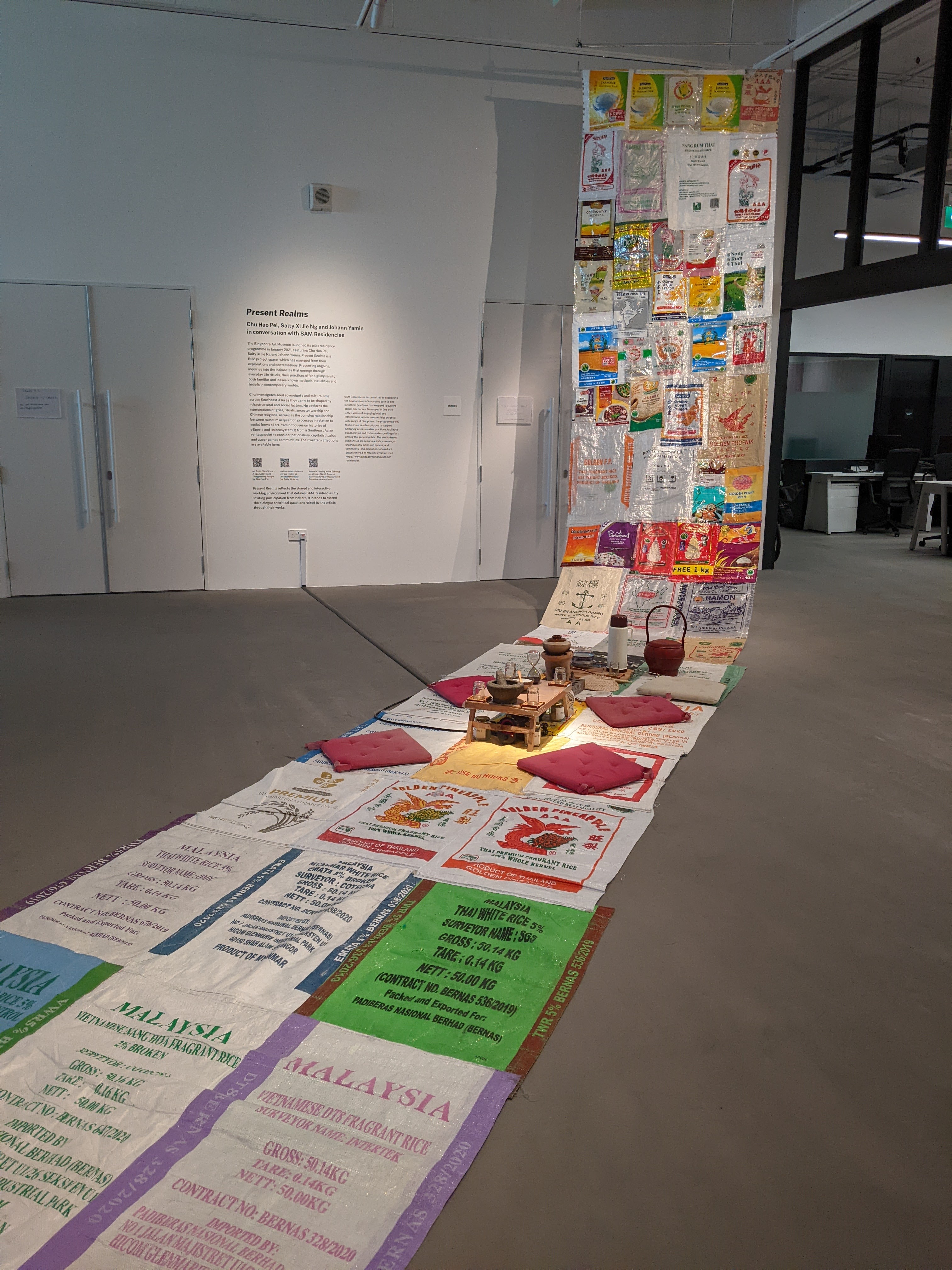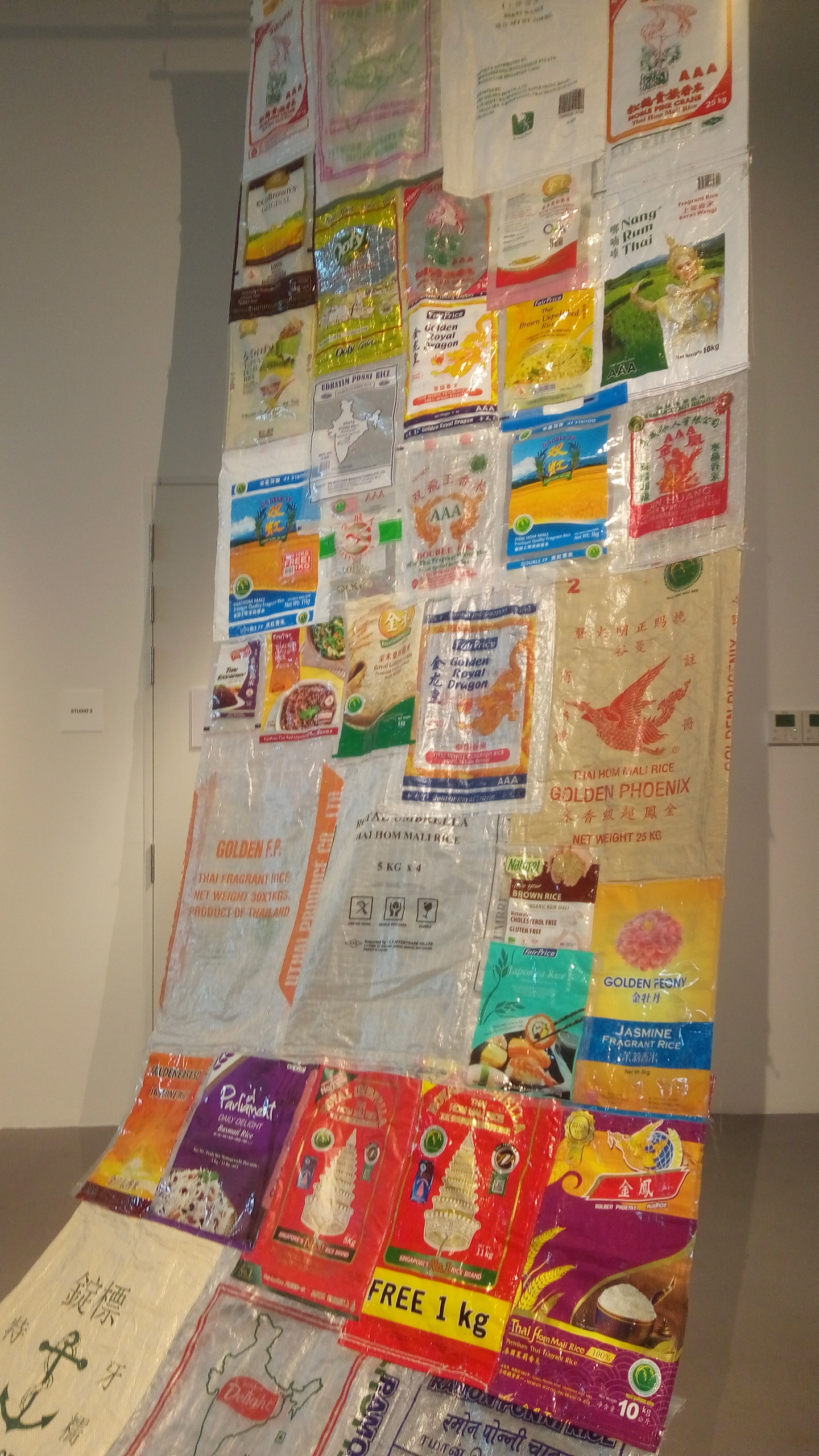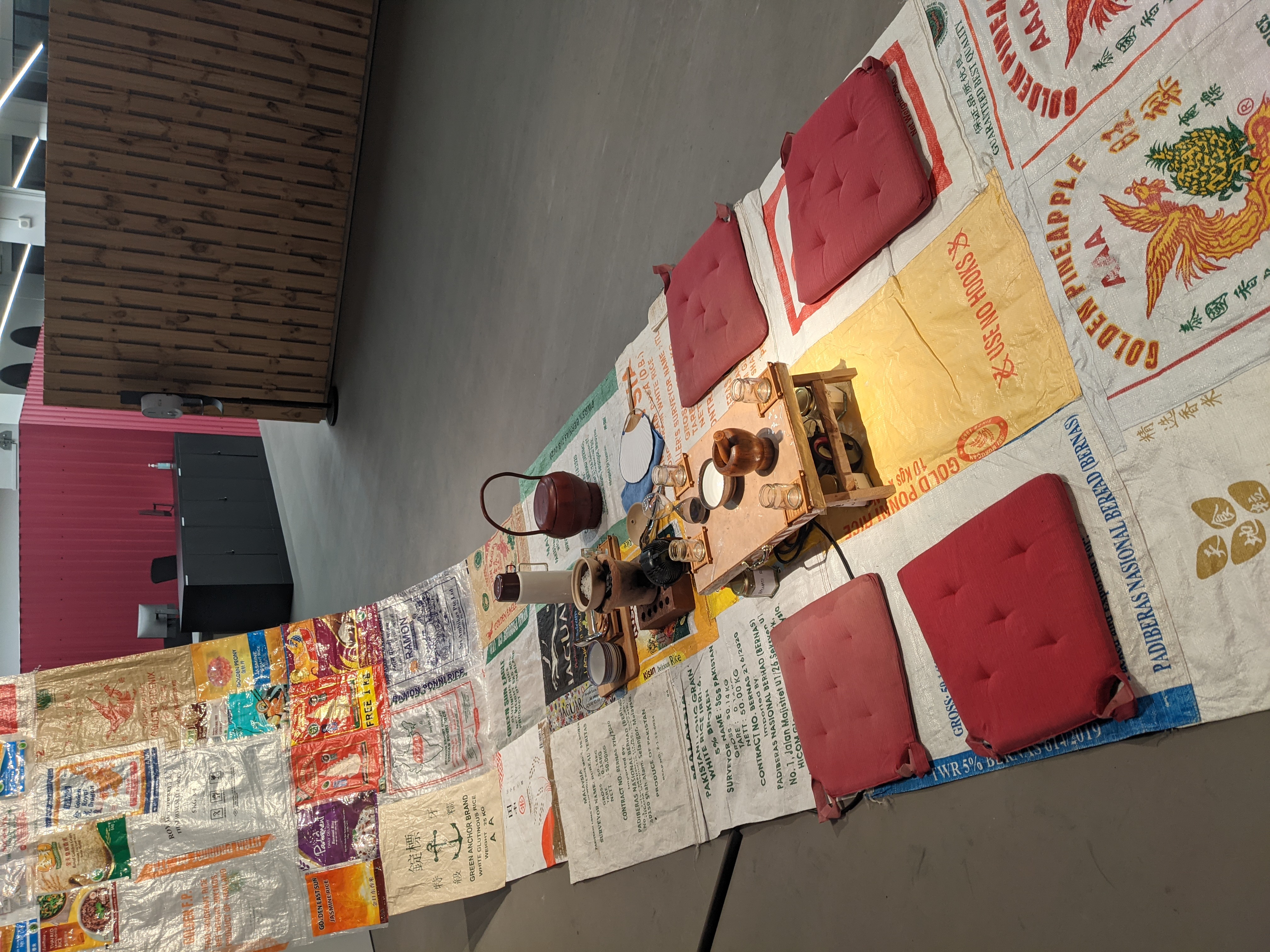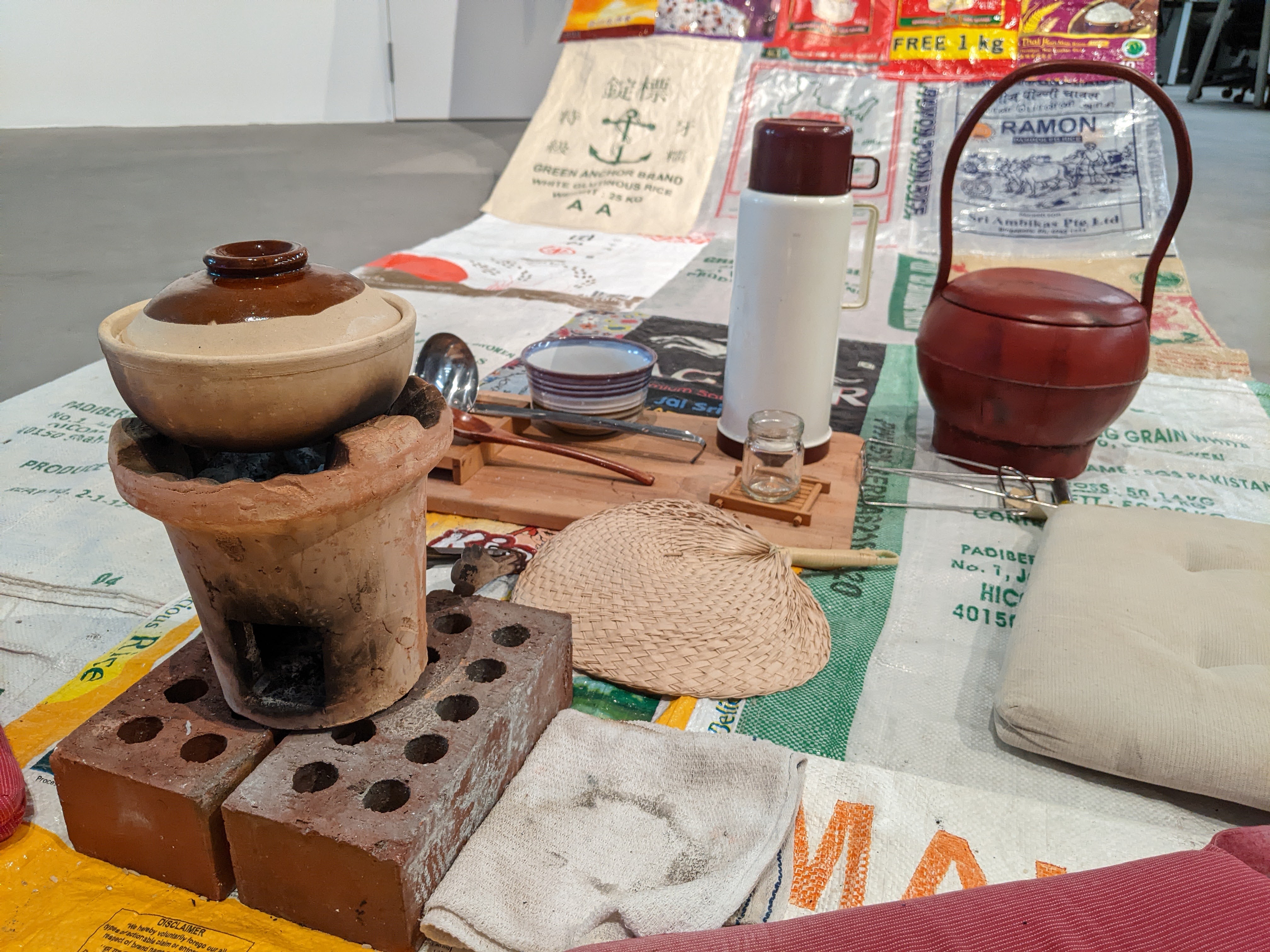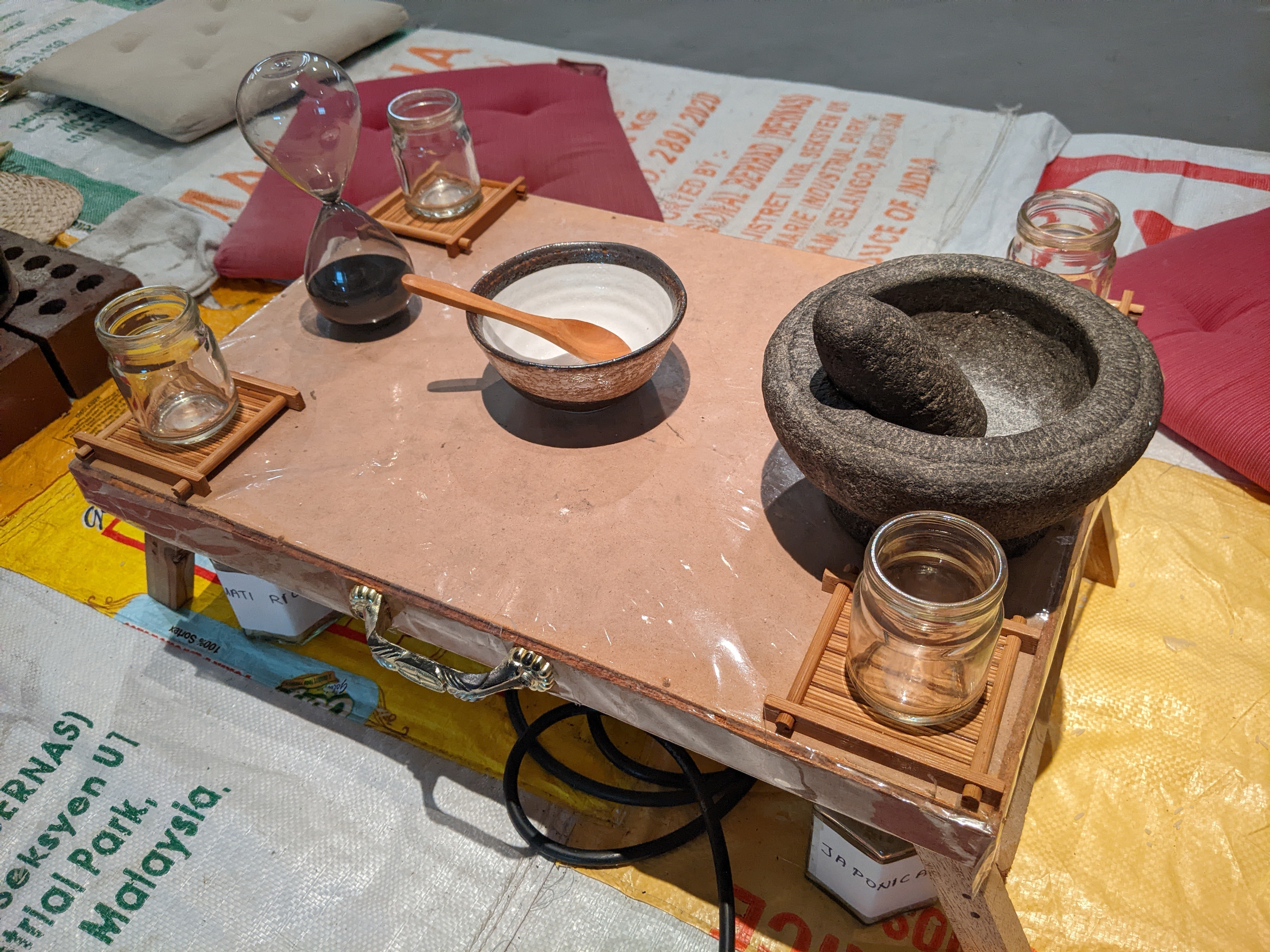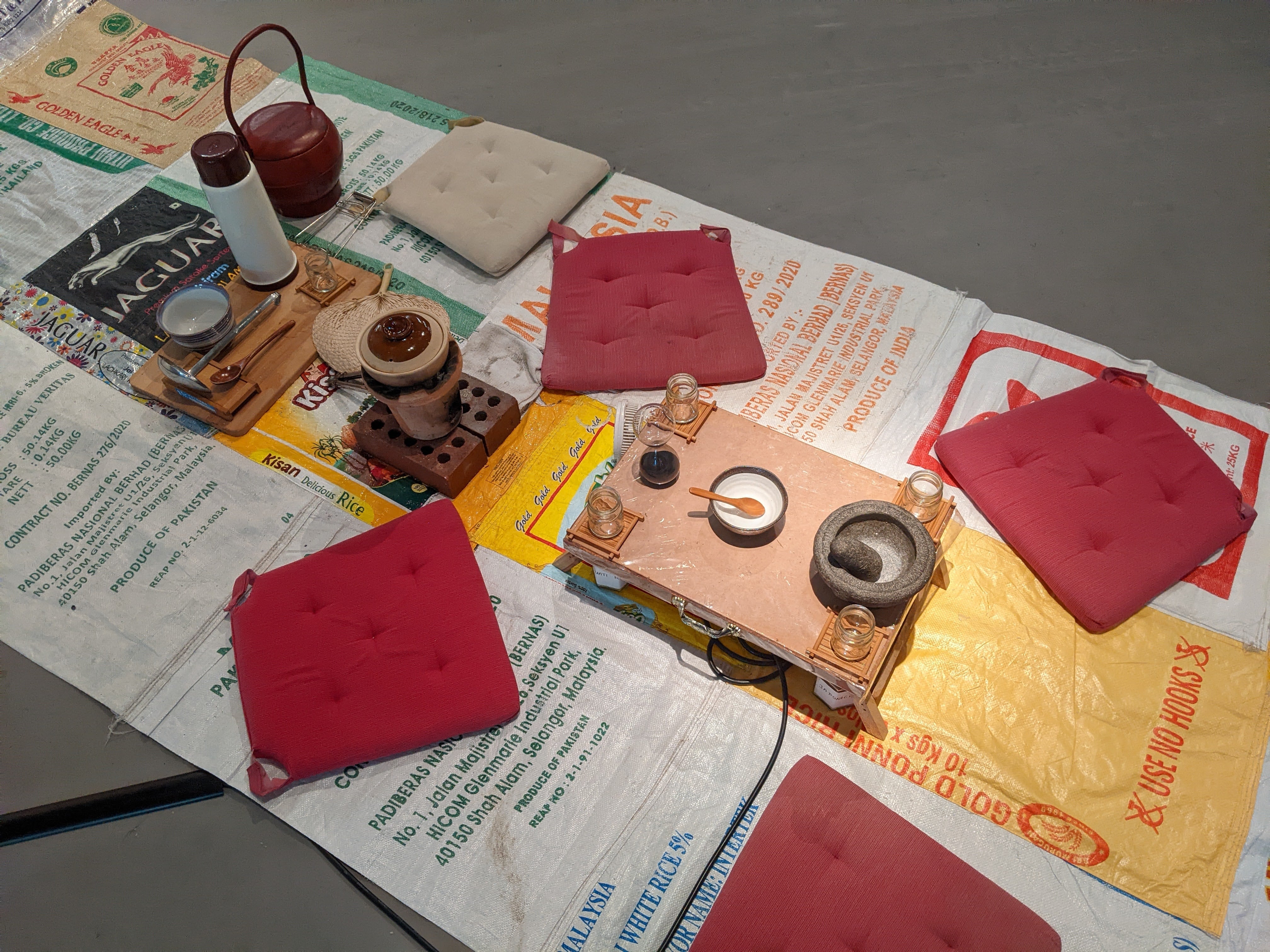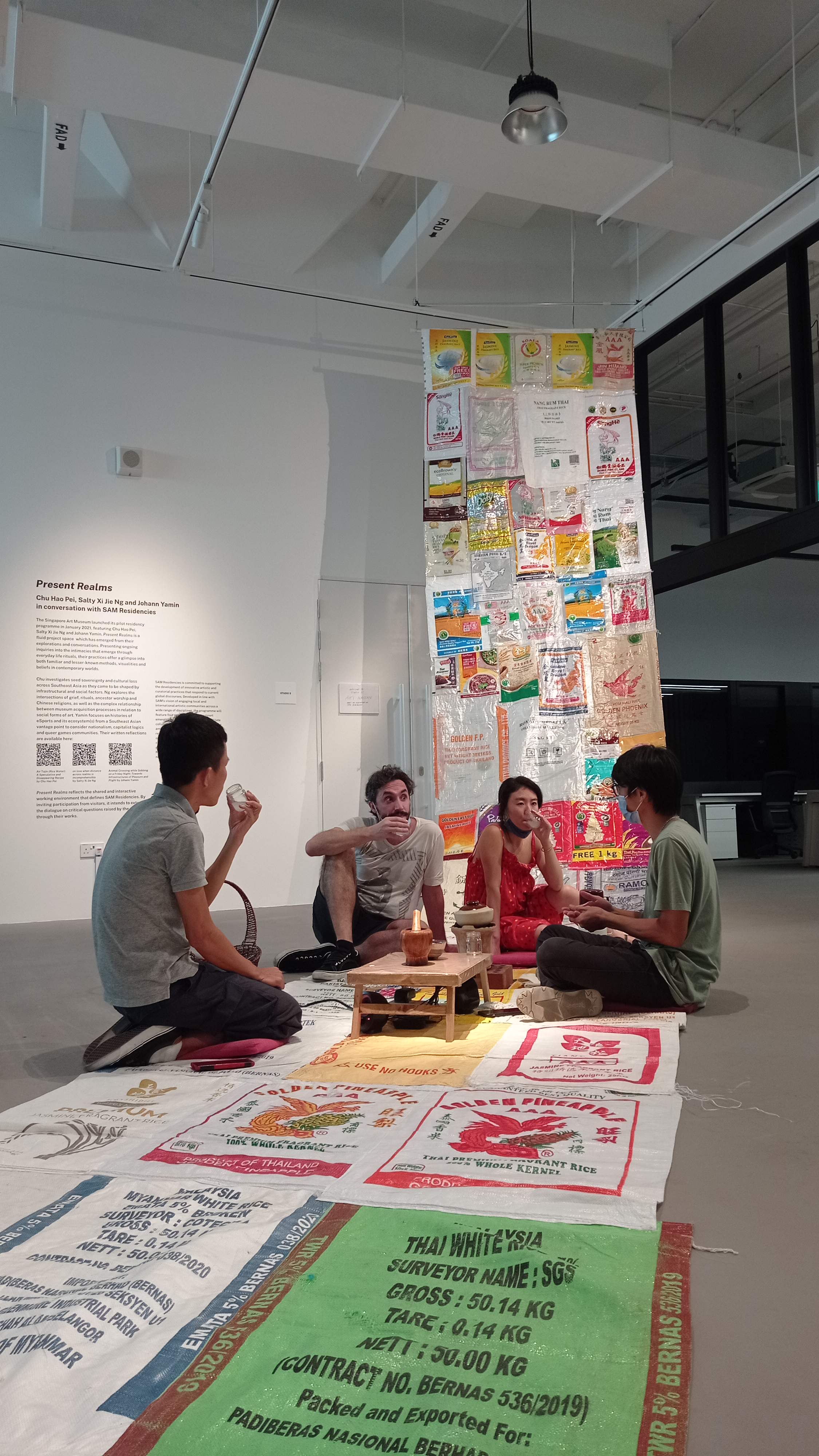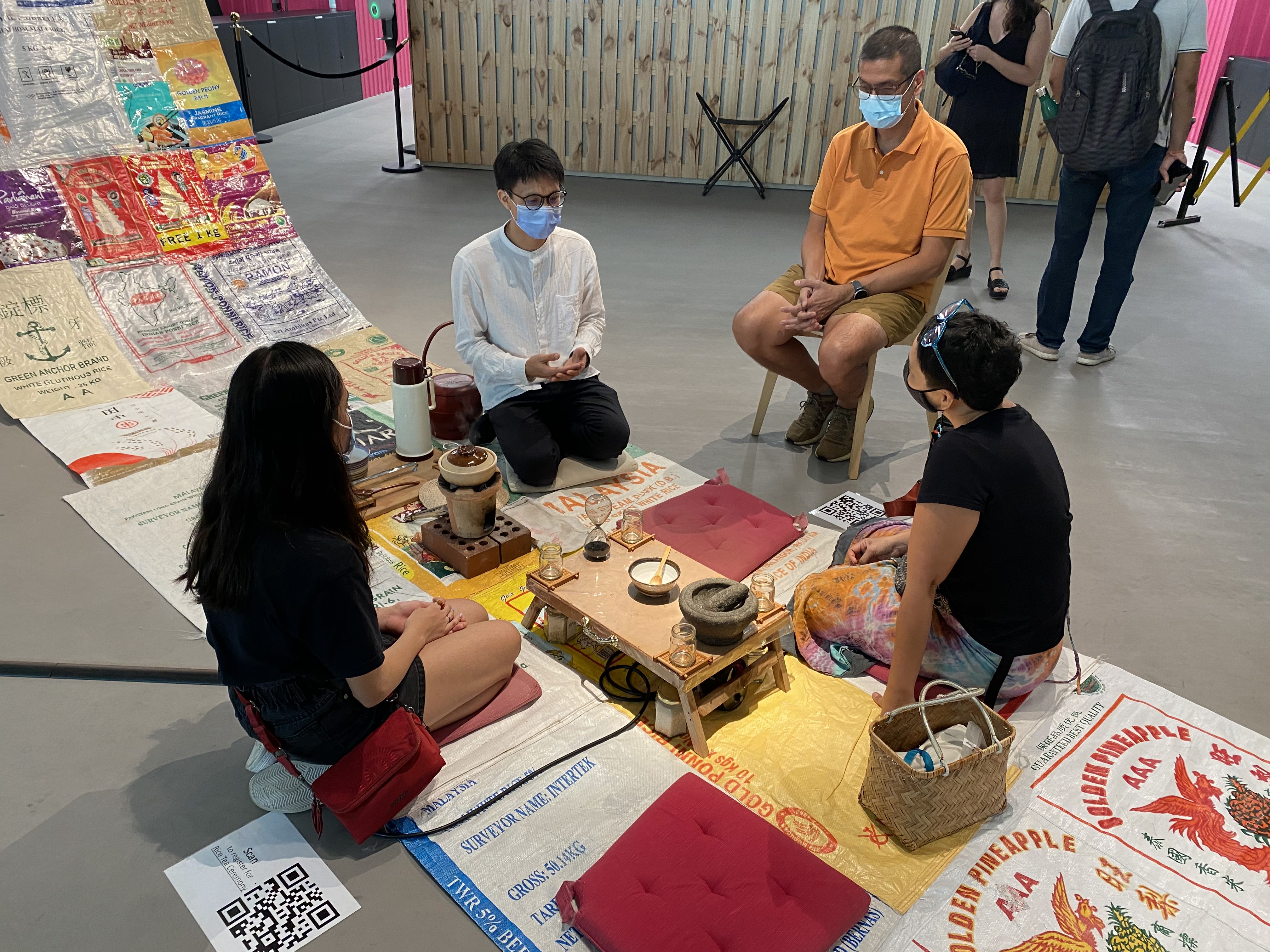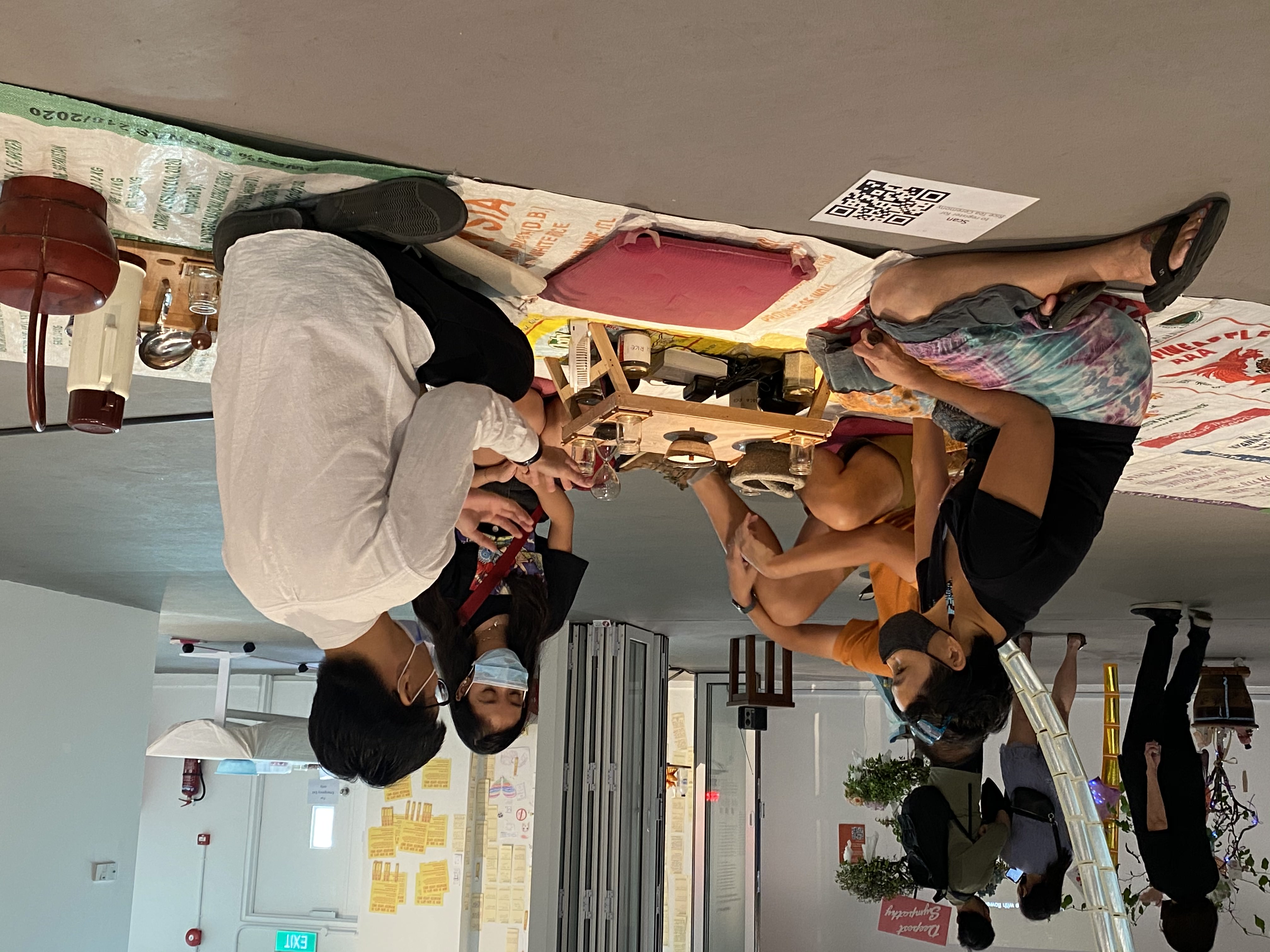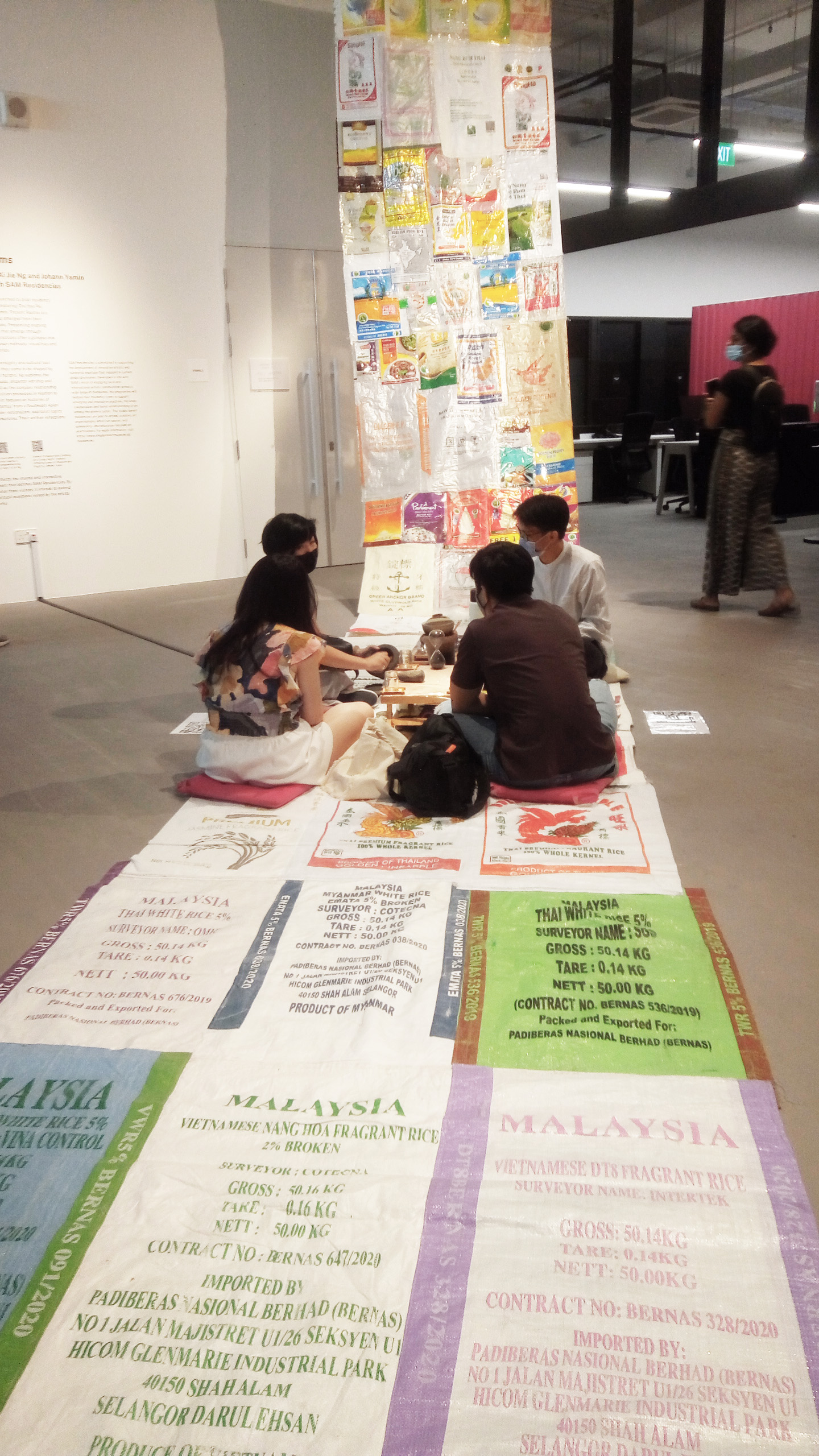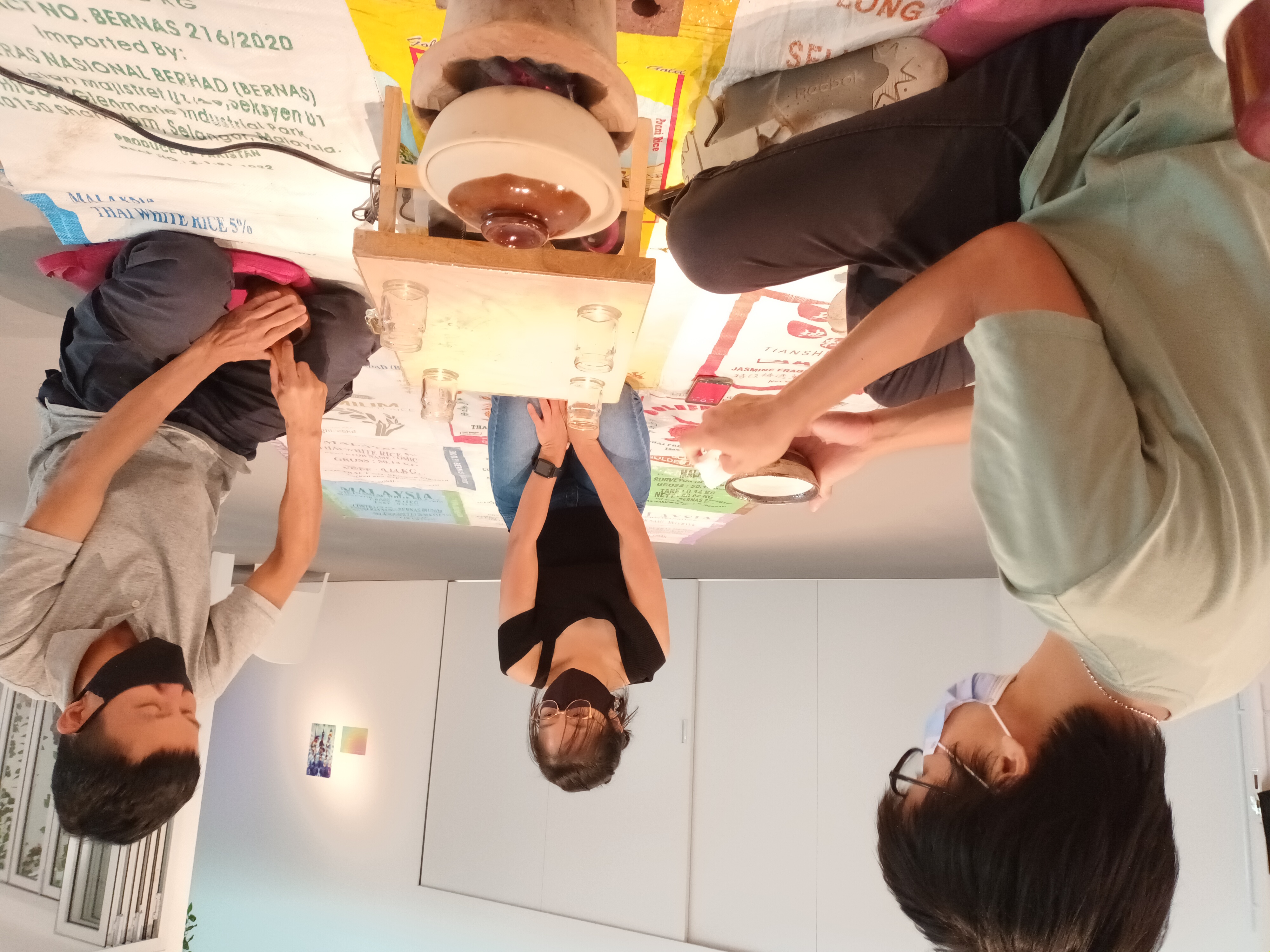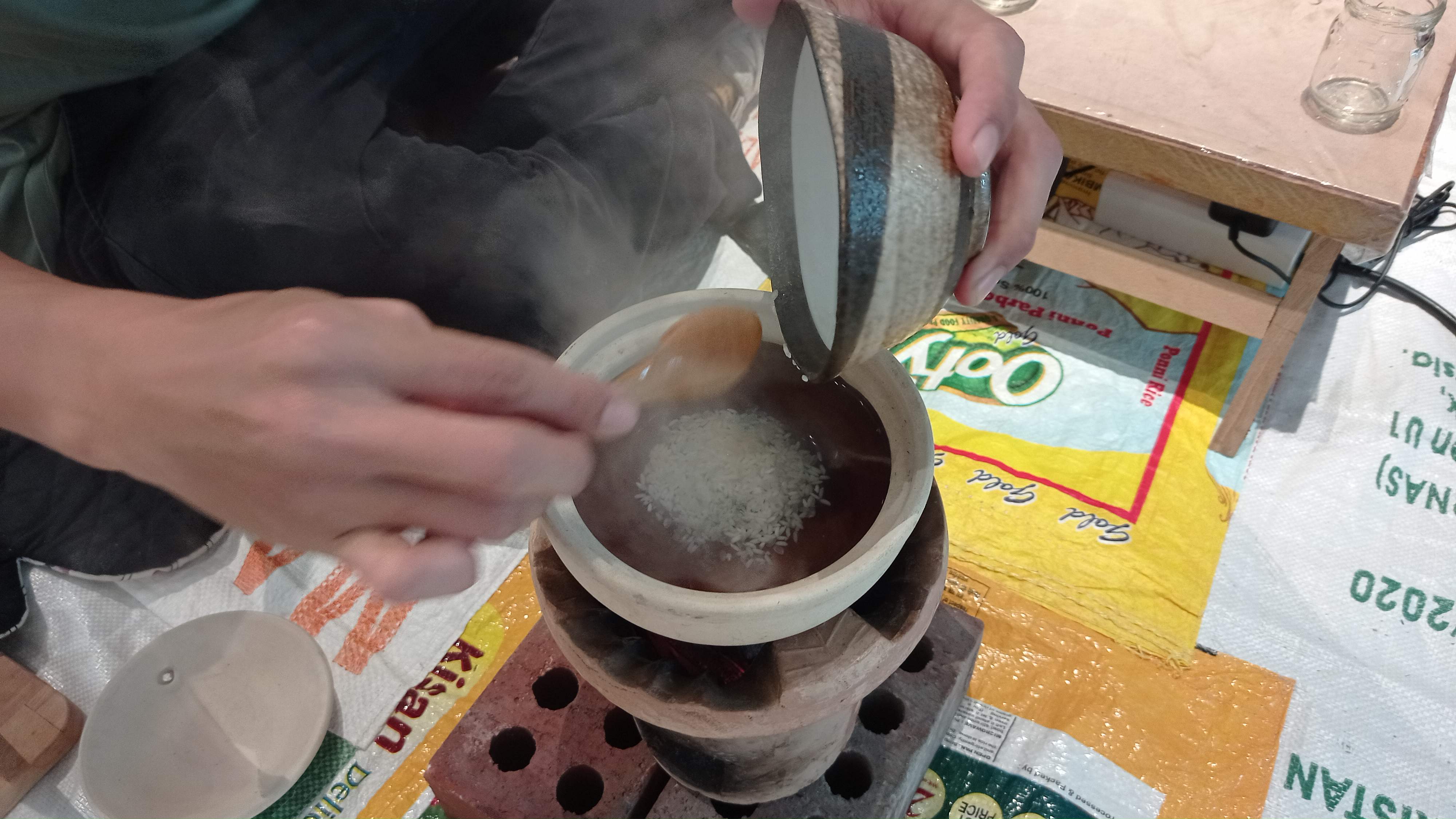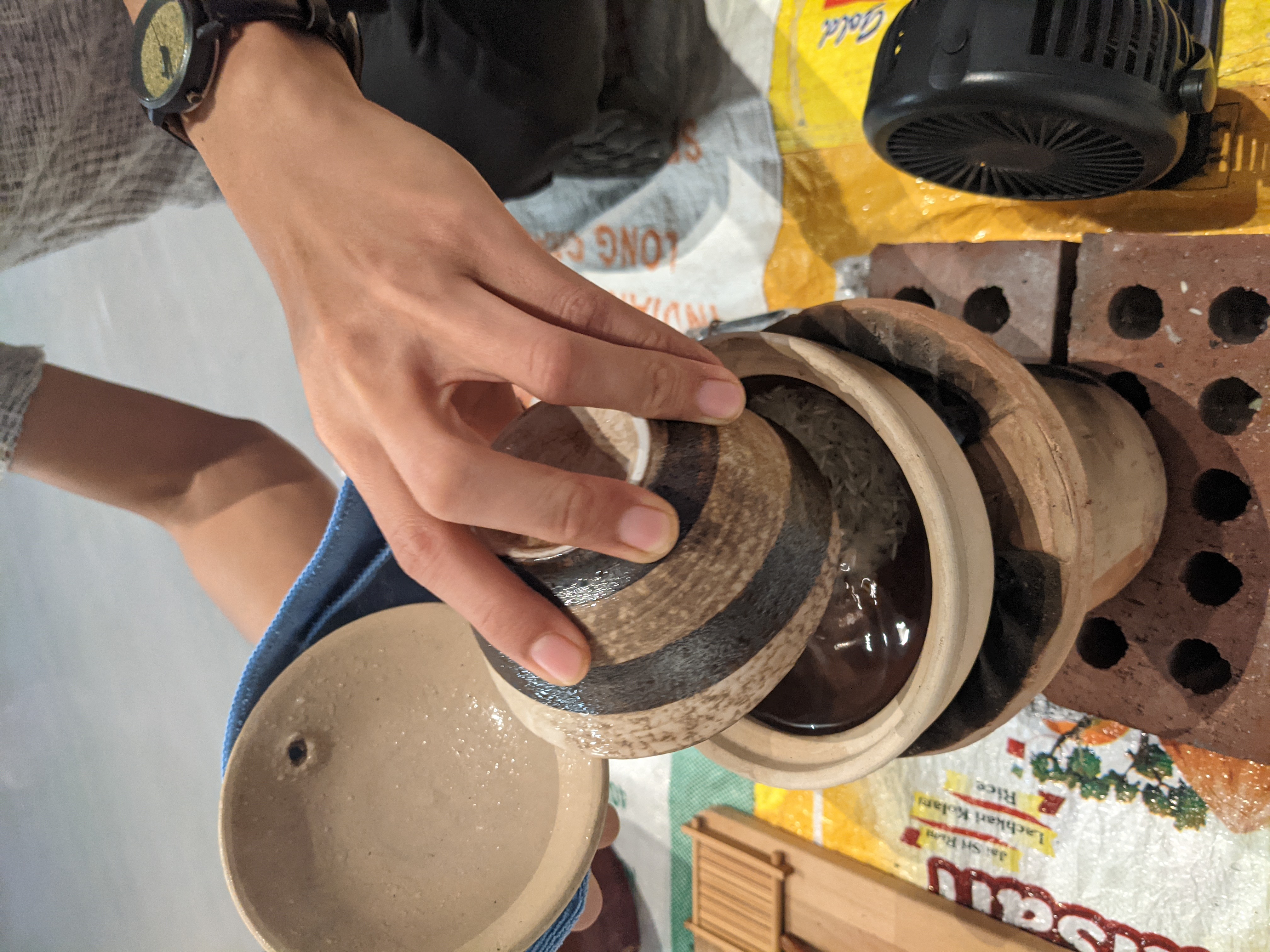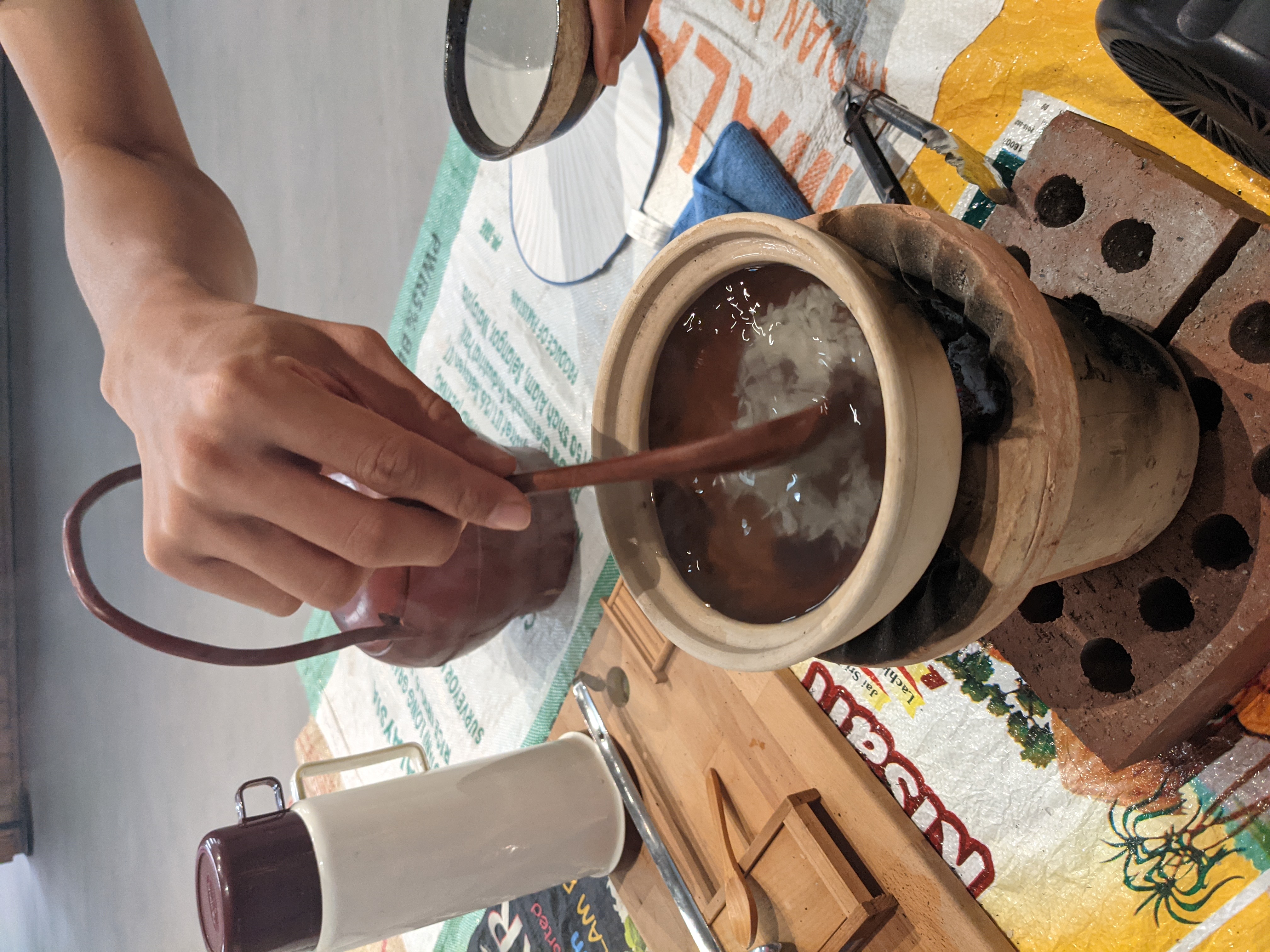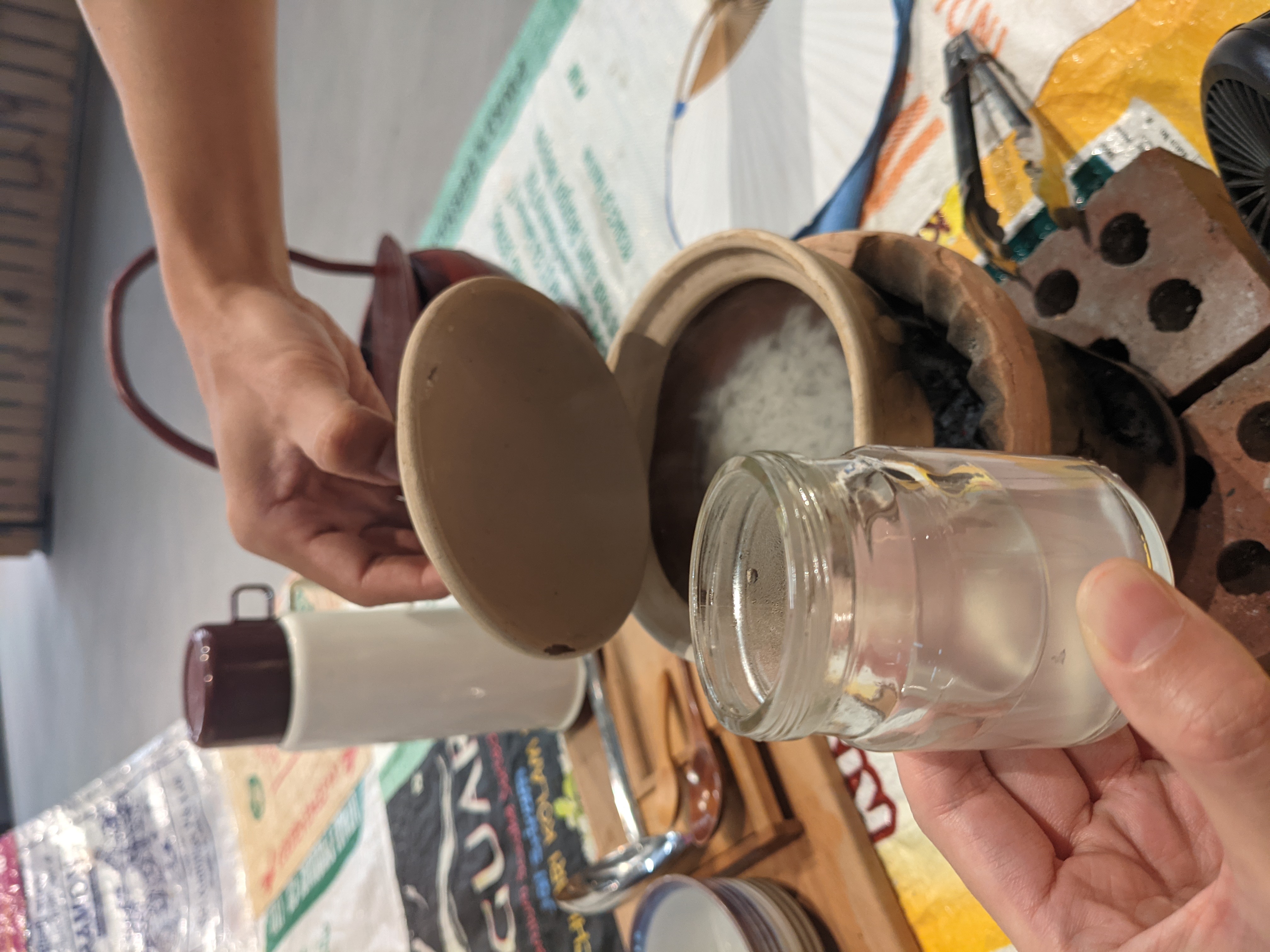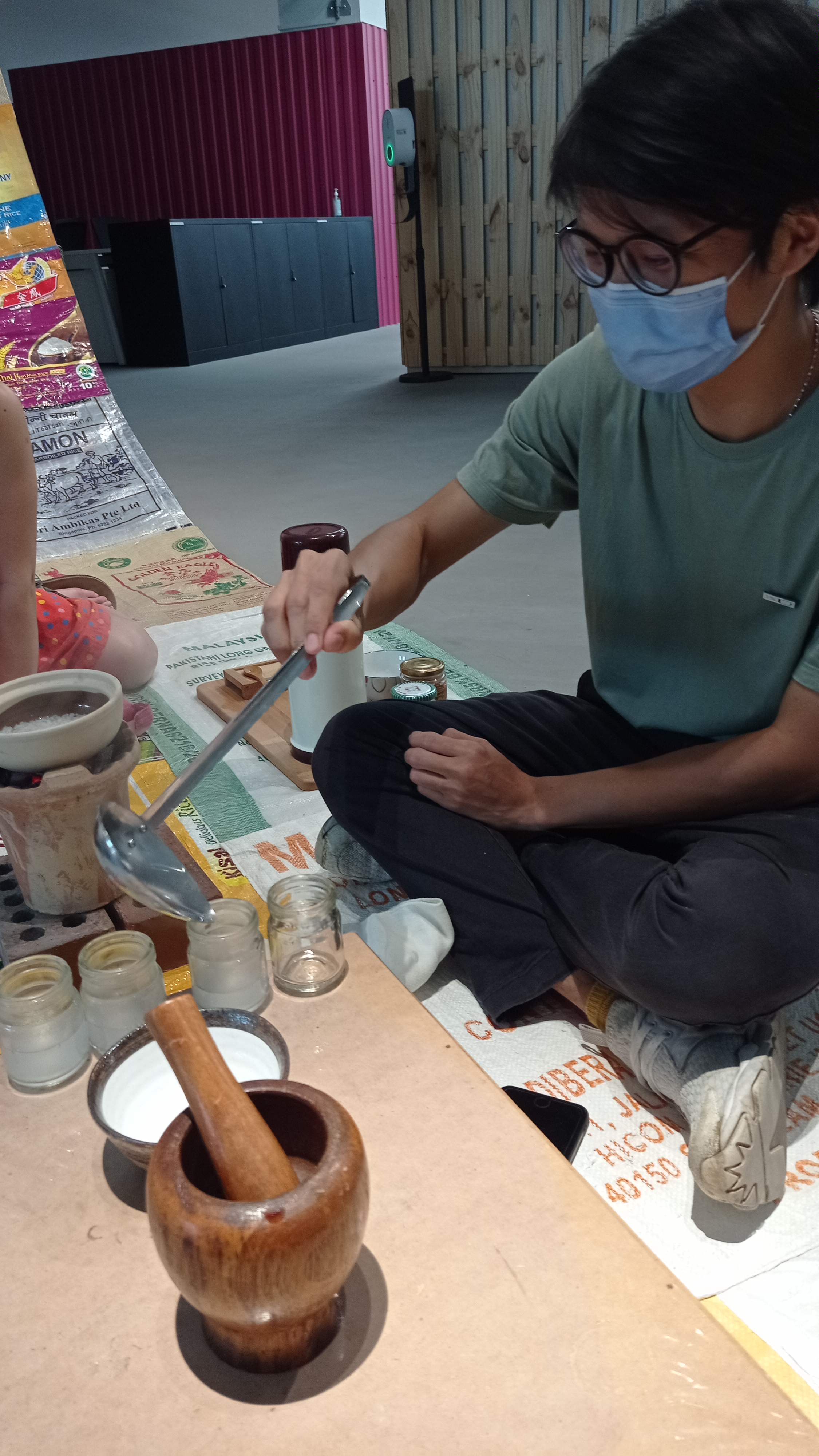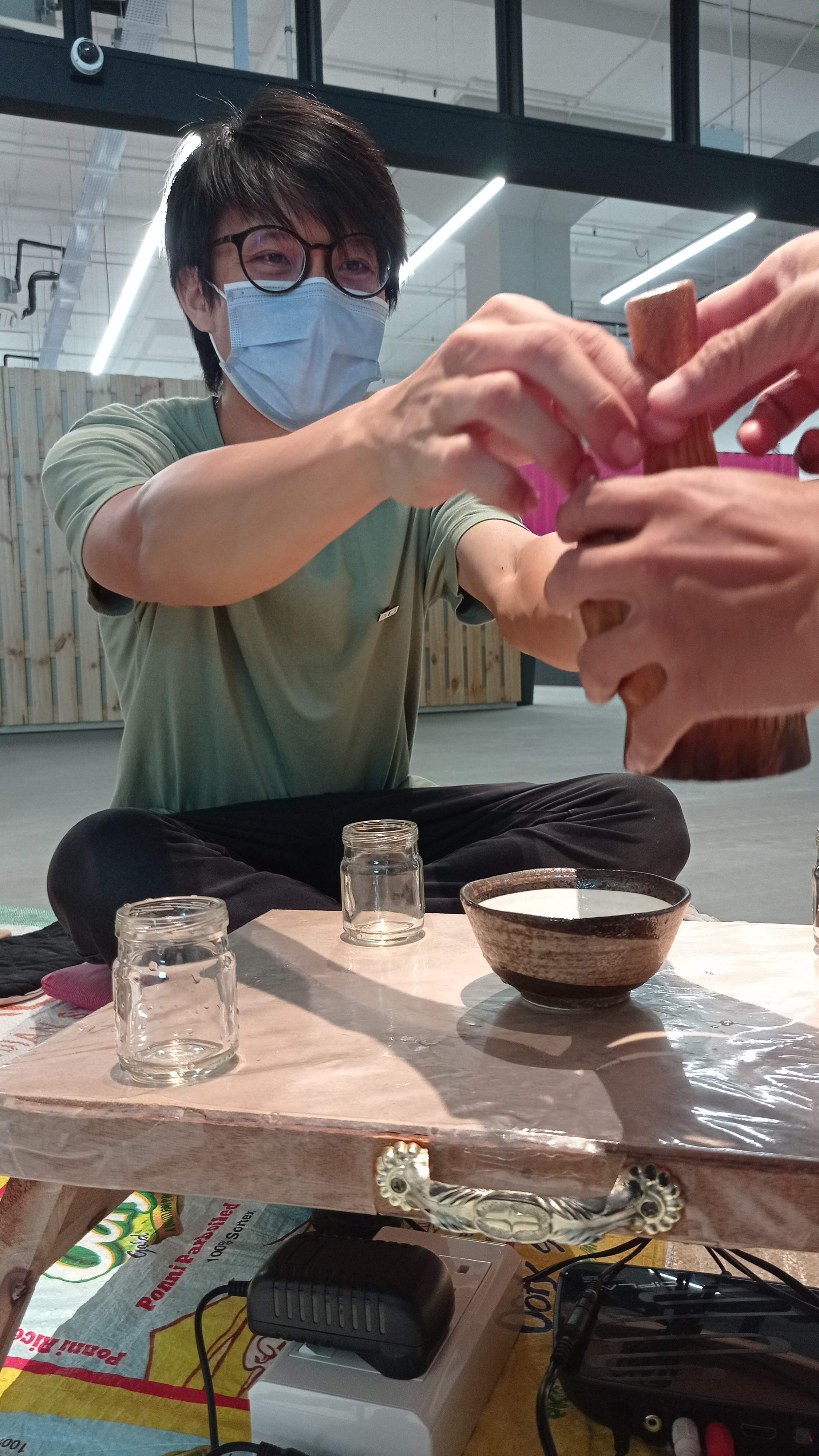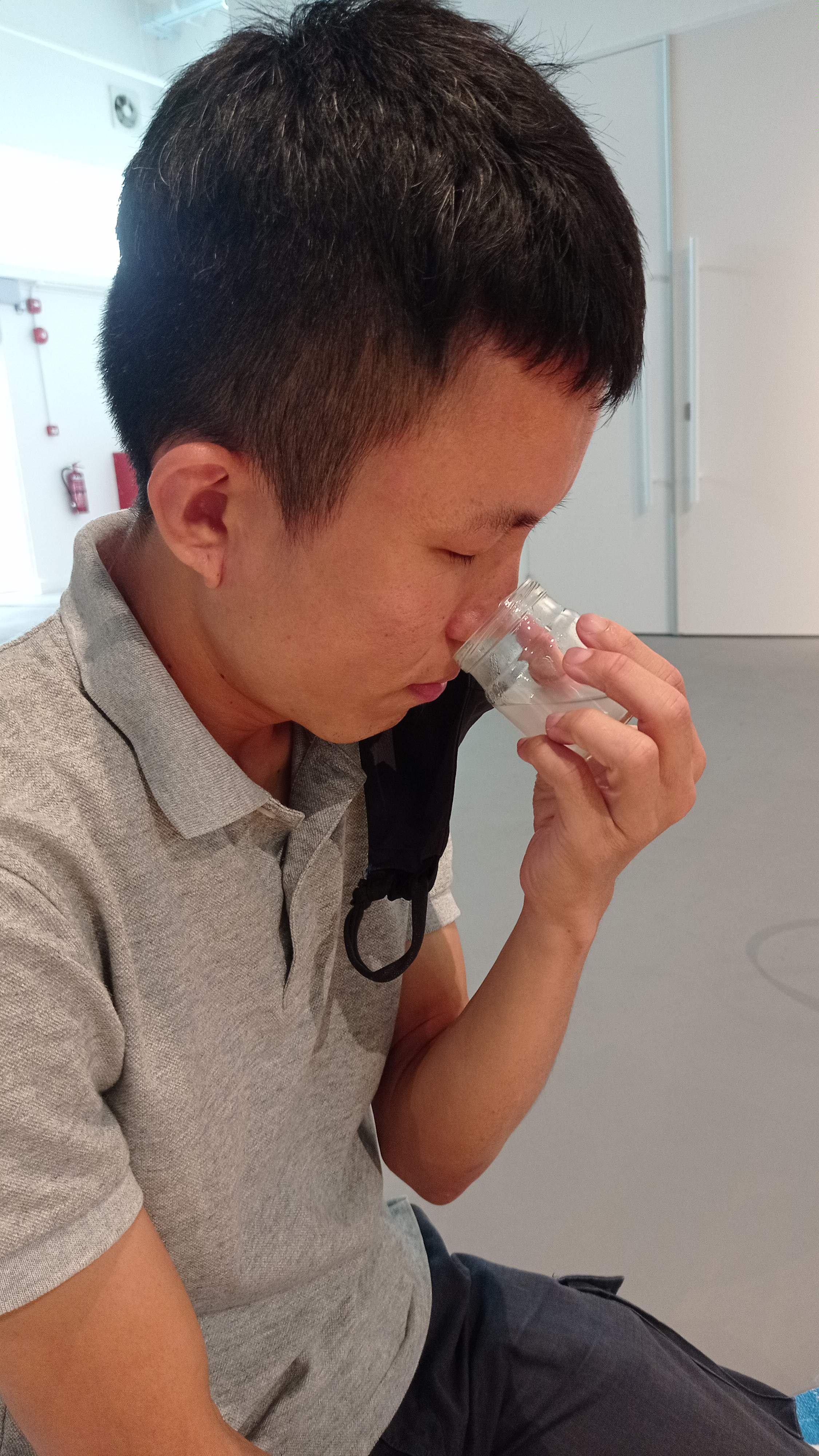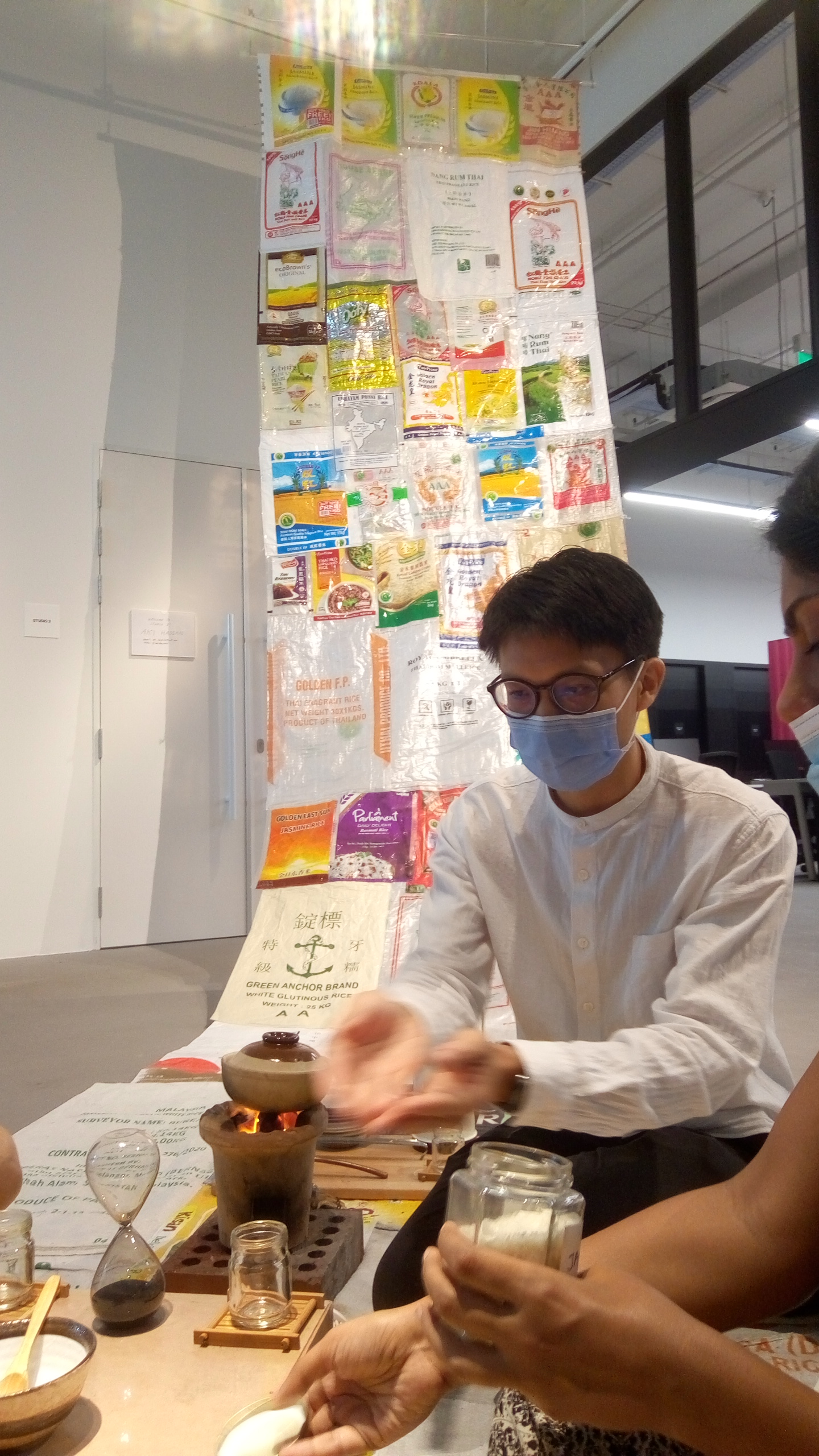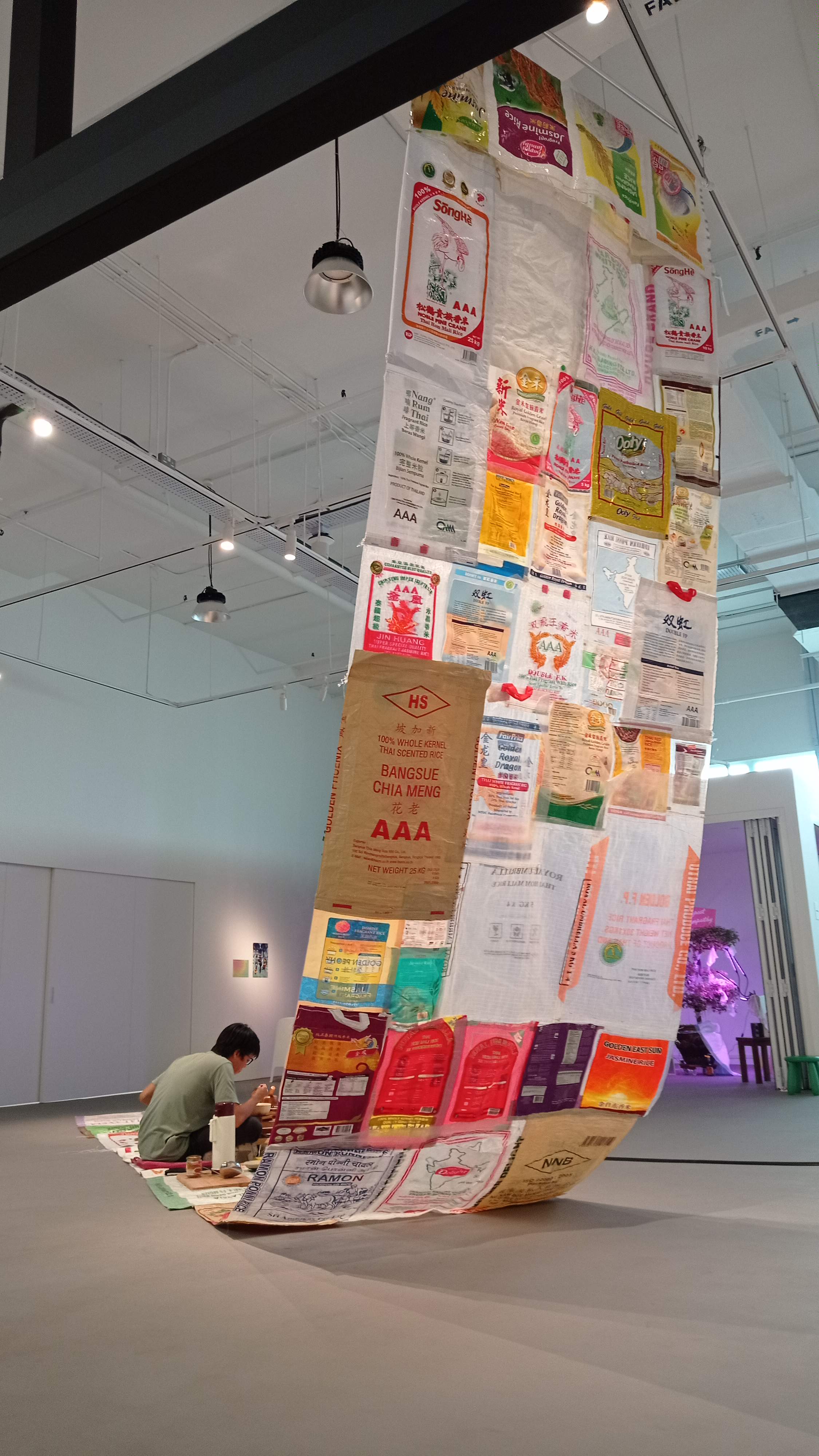Grind, boil,
smell & taste
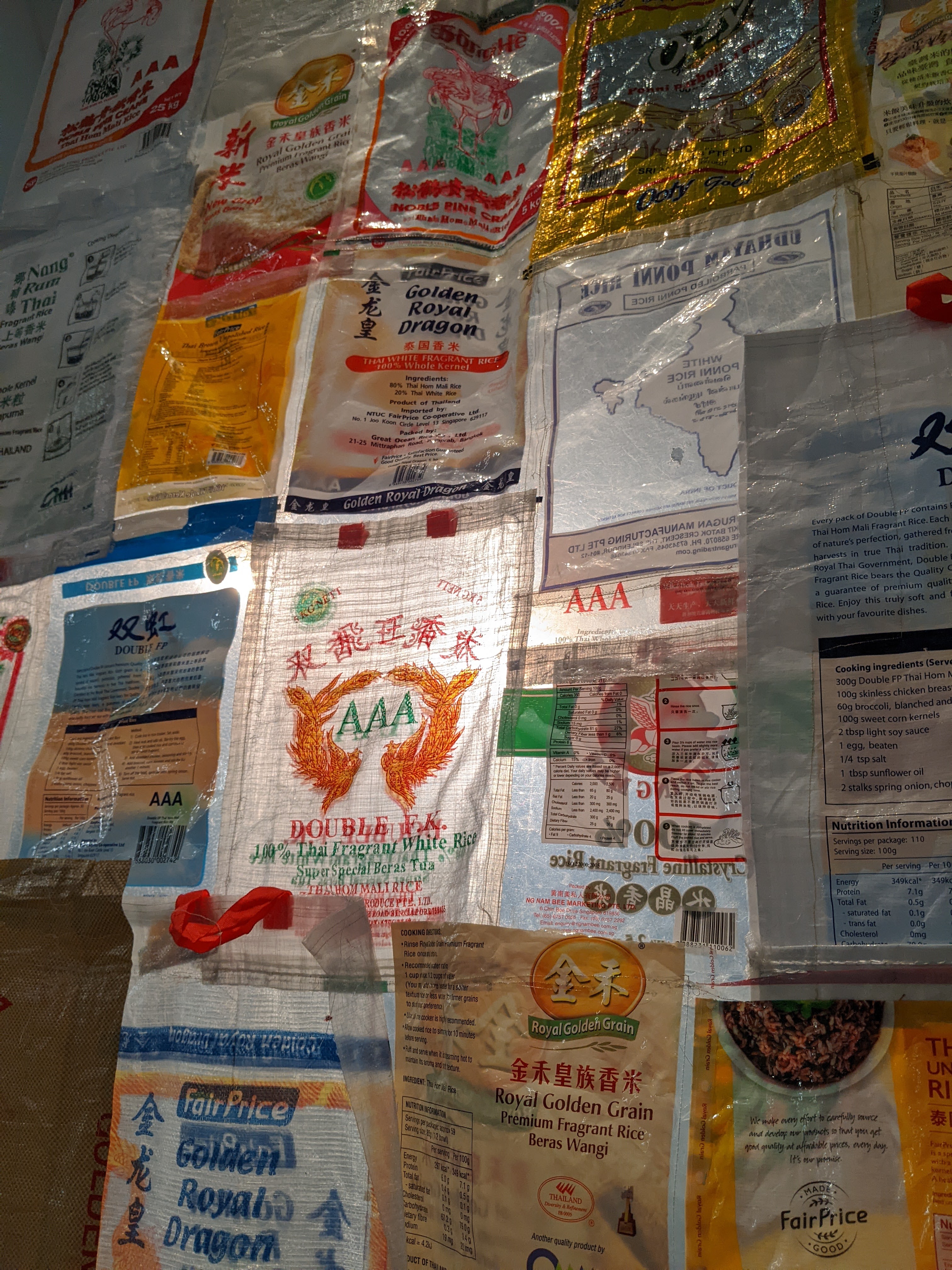
Close up details of stitched rice packs from Singapore. Images courtesy of artist
Grind, boil, smell & taste
Chu Hao Pei
Inspired by the traditional tea ceremony, Grind, boil, smell & taste is a process-led, and conversation driven approach, to enquire into the relationships between participants and the common grain - rice. Participants were invited to bring a handful of their own rice from their homes, where the artist activates the encounter through a rice tea ceremony - a series of processes of preparing the rice tea and oral inquiries - to probe into our relationships with the common grain beyond the everyday gastronomical experience. Personal childhood/family memories, the regional rice trade networks and the blanket dominance of hybrid rice seed varieties are several topics which the encountering(s) have attempted to unpack in a larger rhizome around the rice grain.
Grind, boil, smell & taste was presented at Present Realms in the Singapore Art Museum from 7 January–23 January 2022.
Present Realms marks the conclusion of the pilot SAM Residency programme. It is a fluid project space for the mushrooming of ideas, works-in-progress, and lines of research. Hinging upon themes of intimacy and infrastructure, the three pilot Residents—Chu Hao Pei, Salty Xi Jie Ng, and Johann Yamin—present their continued explorations into varied topics of interest spanning rice, rituals, and gaming. These commingling practices invoke portals towards other realms—a glimpse at methods, visualities, and beliefs present in contemporary worlds both familiar and distant.
Keywords: demand, hybrid seeds, political tool, supply, sovereignty, sufficiency,
yield
Chu Hao Pei (b.1990, Singapore) is a visual artist whose works are primarily influenced by his long-standing interest in the interrelations between culture and the environment. Chu’s practice explores the shifting physical, sociological and emotional connections with our natural and urban landscapes. His works shed light on the overlooked and accidental by interweaving the processes of engagement, documentation and research. In this way, he examines the complexities of environmental and cultural loss (or resurgence) shaped by political, economic and social factors. Chu uses certain methods of documentation and representation to reveal aspects of his subject, while simultaneously concealing and drawing attention to what has yet to be communicated or understood.
